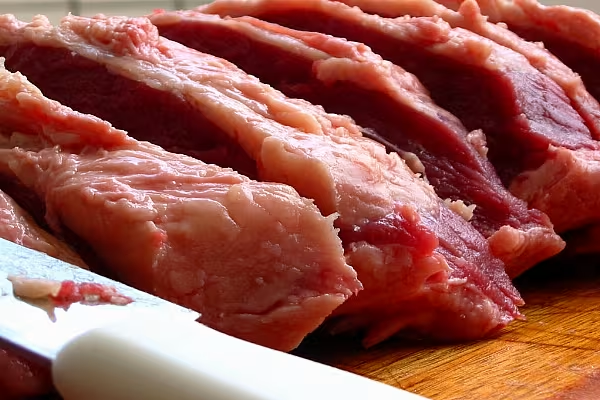A safety scare. Political scandal. Export bans. This year’s headlines could scarcely be worse for Brazilian meat producers.
Yet, right now, they’re enjoying stellar market conditions for beef. Prices that meatpackers like JBS SA, Marfrig Global Foods SA and Minerva SA pay for cattle had the biggest decline in two decades this year. Meanwhile, wholesale prices have been mostly flat, fetching a premium of about 38% on cattle, the most since at least 2008, according to data from agricultural consulting firm Scot Consultoria.
"We have never seen a situation like this," said Mariane Crespolini, a researcher at Cepea, the University of São Paulo’s agriculture-research unit, in a telephone interview.
Domestic Demand
So what’s going on? Domestic beef demand has shown some signs of recovery, according to Cepea, even after two years of recession and the so-called 'Carne Fraca' ('Weak Flesh') investigation mounted by federal investigators, who went public in March with allegations of spoiled meat and bribery among state inspectors.
As for supply, there’s an abundance of carcasses, partly because of international concerns about the quality of Brazilian meat. Domestic cattle prices have fallen by 15% since March, after several nations temporarily banned Brazilian beef following the Weak Flesh probe.
Additional downward pressure came as JBS, the nation’s largest cattle buyer, was forced to reduce slaughtering after Joesley and Wesley Batista, the brothers who control and run the company, confessed in May to graft and other offenses. Research firm Agroconsult cut its forecast for Brazil’s slaughtering volume by 1 million cattle, to 39.6 million, in the aftermath of the scandal.
Also boosting availability are ranchers offering more cows for slaughter after a drop in calf prices, and the sale of animals that finally reached slaughter weight after being put out to pasture last year because of high feed costs.
"Indicators haven’t been so positive for meatpackers since at least the end of the 1990s," said Mauricio Nogueira, an associate at researcher Agroconsult, citing the spread between beef and cattle prices.
Second Quarter
Marfrig, Minerva and JBS are expected to post higher second-quarter earnings before interest, taxes, depreciation and amortisation, compared with a year earlier, according to the average of analysts’ estimates compiled by Bloomberg. Carne Fraca and the ensuing export bans are weighing on the companies, according to a report from Banco Santander SA, but stronger beef margins should offset the worst effects, Itau BBA said in a report from 20 July.
Minerva and Marfrig declined to comment on their earnings. JBS didn’t respond to a message seeking comment.
Attractive margins may spur local slaughterhouses that had suspended production over the past few years to resume operations, Agroconsult’s Nogueira said. On 3 July, Marfrig, Brazil’s second-largest beef producer, said that it decided to reopen two slaughterhouses in Brazil’s Central-West region and increase the use of four other plants, as it seeks to expand capacity by 25%, citing higher cattle supplies and improved economic conditions. Minerva is also resuming operations in a plant in Mato Grosso, it said last month.
News by Bloomberg, edited by ESM. Click subscribe to sign up to ESM: The European Supermarket Magazine.














